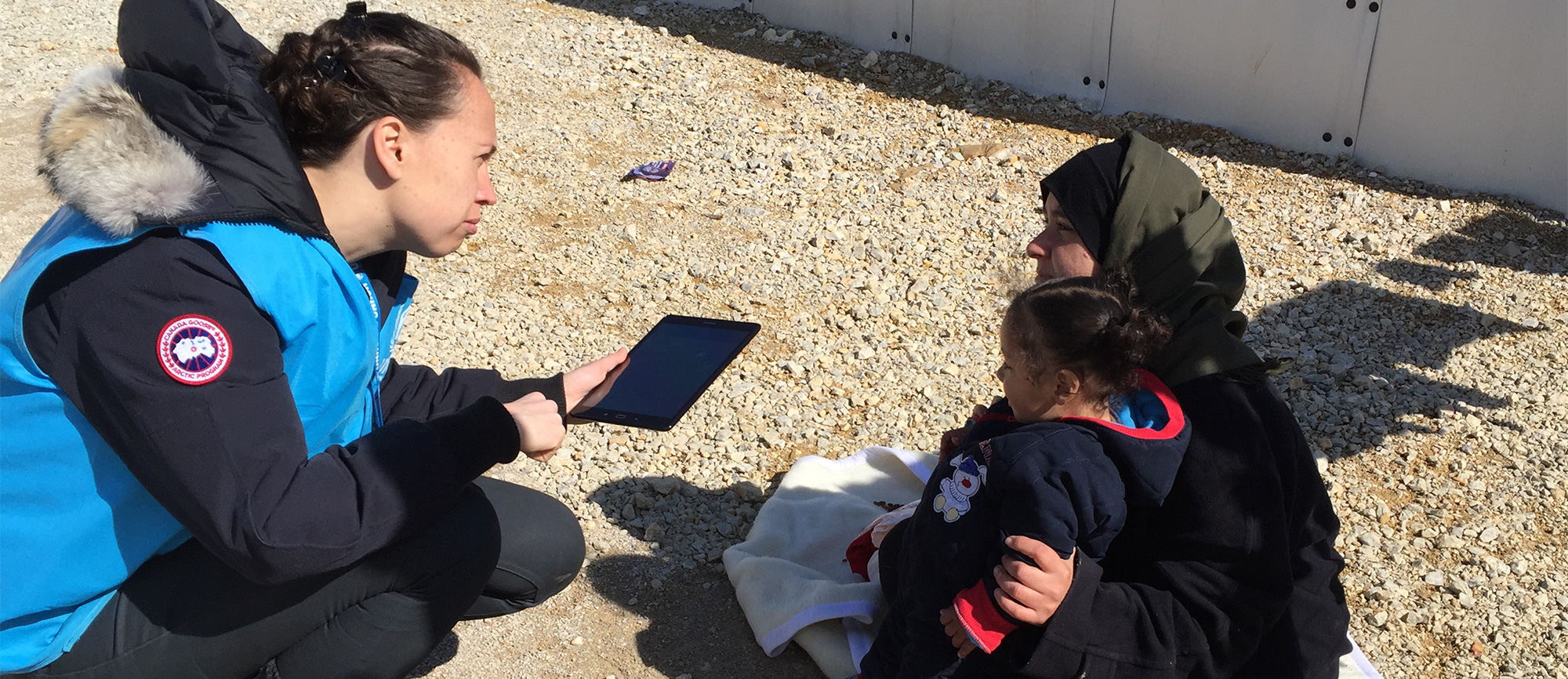On his days off, Abdiwali Mohamed can usually be found on a football field, either juggling a ball or organizing tournaments. For this avid Manchester United fan, there’s a lot more to football than working out and having fun. It can bring enemies together, nurture friendships and help erase differences between people, he says. And in Dollo Ado, such benefits cannot be overlooked.
Born and raised in this rural area located in the southeast of Ethiopia, Mohamed has seen his community struggle to cope with a massive influx of refugees fleeing conflict in neighbouring Somalia – more than 200,000 refugees have now been temporarily resettled in five camps managed by UNHCR, and the population is growing. In this isolated part of the world, basic resources like water and firewood are scarce, and disagreements frequently arise between newcomers and host populations, even though the latter share the same ethnicity (the Somali people can be found throughout the Horn of Africa).
“These two groups speak the same language, they practice the same religion and they have the same culture, but they come from different backgrounds, which can lead to some clashes,” he explains.
But Mohamed isn’t one to ward off a challenge. Having joined UNHCR in 2011, first as a Protection Associate, then as a Shelter Associate, he has grown a passion for improving the quality of life of refugees and fostering dialogue with host communities. Whether he’s trying to implement innovative shelter solutions, or breaking down cultural barriers, he says it always comes down to good communication.
“Refugees are very resourceful. If you want to help them, the best thing to do is just to sit with them and listen to what they have to say. They may tell you something that would have never thought of,” he points out.
His daily work revolves around meeting the many needs of refugees in terms of housing. It may be finding a way to accommodate very large families for whom standard shelters are too small, protecting housing units from destructive termites, or more generally helping beneficiaries adapt to their new lives in the camps. “Refugees are used to better living conditions. They come from different socio-economic backgrounds and may not have the energy to start from zero,” he explains.
The new Better Shelters, developed in partnership with IKEA Foundation and Better Shelter holds tremendous promise in terms of improving the quality of life of refugees, he says, notably because it allows for greater privacy and is easier to maintain over time. In fact, the design became so popular during the testing phase that Mohamed soon found himself overwhelmed with requests for new shelters. “Three months after we started giving out the first units, everybody was asking why they couldn’t have their own. It was difficult for them to understand we were still testing the shelter, and that not every family would get one,” he recalls. Working on the Better Shelters eventually proved a great experience.
“I learned a lot from the Innovation unit about team work and coming up with new solutions together,” Mohamed says.
He’s also been participating in other shelter projects, such as a termite-resistant prototype made from matured eucalyptus, implemented by the International Organization for Migration. And he’s come up with his own solution to the termite problem – an add-on for existing bamboo shelters used in certain sections of the Dollo Ado camps, which protects the eucalyptus frame with a recycled plastic sheet. The additions are made by the beneficiaries themselves in order to increase their sense of ownership and increase community participation.
Mohamed thinks engaging with refugees is crucial to improving the quality of life in the camps. “Whatever you’re planning on doing in the camp, it’s important to include refugees in the process,” he explains. He thinks more could be done to increase their autonomy, such as negotiating with host communities to increase the refugees’ access to agricultural land, and developing livelihoods programs. He lobbies for including women in the shelter labour workforce, usually a male-dominated area, in order to increase their income, and he’s helped create conflict resolution committees comprised of elders selected among refugees and host communities, to help prevent clashes between both groups. The idea has become so successful that the committees have been asked to work with local authorities on more than one occasion.
By working to improve the lives of refugees, Mohamed ultimately hopes to facilitate their return home.
“I have only one dream – that all refugees can one day go back home safely, and with new skills they will be bringing with them from the camps,” he says.
We’re always looking for great stories, ideas, and opinions on innovations that are led by or create impact for refugees. If you have one to share with us send us an email at innovation@unhcr.org
If you’d like to repost this article on your website, please see our reposting policy.









